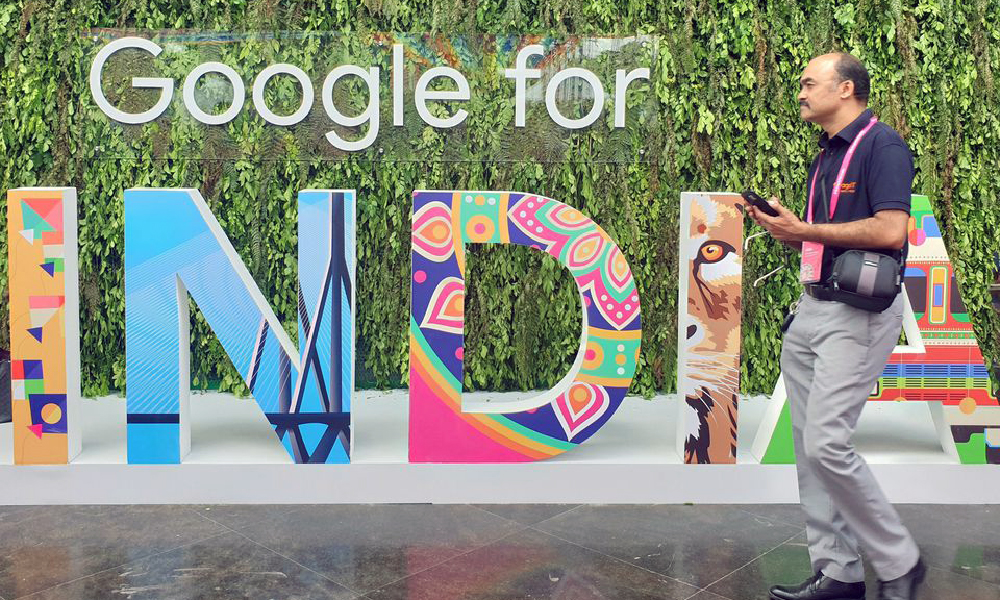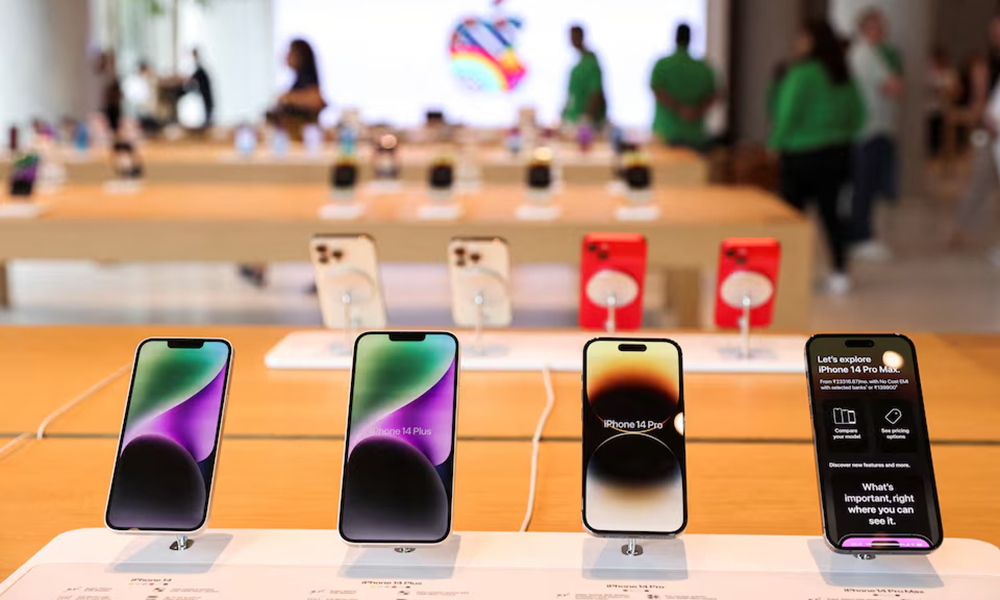Science & Technology
Google fined $162 mln by India antitrust watchdog for abuse of Android platform

India’s competition regulator on Thursday ordered Alphabet Inc’s (GOOGL.O) Google to change its approach to its Android platform and fined the U.S. tech company 13.38 billion Indian rupees ($161.95 million) for anticompetitive practices, Reuters reported.
The Competition Commission of India (CCI) said Google leveraged its dominant position in markets such as online search and app store for Android, to protect the position of its apps like Chrome and YouTube in mobile Web browsers and online video hosting.
CCI also restricted Google from certain revenue sharing agreements with smartphone makers, noting that such practices helped Google to secure exclusivity for its search services “to the total exclusion of competitors.”
Google declined to comment on the order.
“Markets should be allowed to compete on merits and the onus is on the dominant players (in the present case, Google) that its conduct does not impinge this competition on merits,” CCI said in a statement.
The U.S. company is facing a series of antitrust cases and the tightening of existing tech-sector regulations in India, read the report.
According to Reuters the competition watchdog is separately looking in to Google’s business conduct in the smart TV market and its in-app payments system.
The Android-related probe, started in 2019, was sparked by a complaint from two junior Indian antitrust research associates and a law school student. The Indian case is similar to one faced by Google in Europe, where regulators imposed a $5 billion fine on the company for forcing manufacturers to pre-install its apps on Android devices.
Google was ordered by India on Thursday not to restrict smartphone users from uninstalling its pre-installed apps like Google Maps and Gmail, read the report.
CCI also asked Google to allow users to pick their search engine of choice for all relevant services while setting up a phone for the first time.
Google’s Android operating system powers 97% of India’s 600 million smartphones, according to Counterpoint Research.
Science & Technology
Apple loses top phonemaker spot to Samsung as iPhone shipments drop, IDC says

Apple’s (AAPL.O), opens new tab smartphone shipments dropped about 10% in the first quarter of 2024, hurt by intensifying competition by Android smartphone makers aiming for the top spot, data from research firm IDC showed on Sunday.
Global smartphone shipments increased 7.8% to 289.4 million units during January-March, with Samsung (005930.KS), opens new tab, at 20.8% market share, clinching the top phonemaker spot from Apple, Reuters reported.
The iPhone-maker’s steep sales decline comes after its strong performance in the December quarter when it overtook Samsung as the world’s No.1 phone maker. It’s back to the second spot, with 17.3% market share, as Chinese brands such as Huawei gain market share.
Xiaomi, one of China’s top smartphone makers, occupied the third position with a market share of 14.1% during the first quarter, read the report.
South Korea’s Samsung, which launched its latest flagship smartphone lineup – Galaxy S24 series – in the beginning of the year, shipped more than 60 million phones during the period.
Global sales of Galaxy S24 smartphones jumped 8%, compared to last year’s Galaxy S23 series during their first three weeks of availability, data provider Counterpoint previously said.
In the first quarter, Apple shipped 50.1 million iPhones, down from 55.4 million units it shipped same period last year, according to IDC.
Apple’s smartphone shipments in China shrank 2.1% in the final quarter of 2023 from a year earlier.
The drop underscores the challenges facing the U.S. firm in its third biggest market, as some Chinese companies and government agencies limit employees’ use of Apple devices, a measure that mirrors U.S. government restrictions on Chinese apps on security grounds.
The Cupertino, California-based company in June will hold its Worldwide Developers Conference (WWDC), where it will highlight updates to the software powering iPhones, iPads, and other Apple devices.
Investors are closely watching for updates on artificial intelligence development at Apple, which has so far spoken little about incorporating the AI technology into its devices. The company earlier this year lost the crown as the world’s most valuable company to Microsoft (MSFT.O), opens new tab, Reuters reported.
Science & Technology
China launch of relay satellite Queqiao-2 for lunar probe mission successful

China National Space Administration (CNSA) said on Friday its launch of a key signal relay satellite was a “complete success” and it would serve as the communication bridge for its future lunar probe missions for years to come, state media reported.
China launched the satellite Queqiao-2, which was named after a mythological bridge made of magpies, and two miniature satellites, Tiandu-1 and Tiandu-2, on March 20.
Queqiao-2 will be used as a communications bridge between the ground operations on earth and upcoming lunar probe missions on the far side of the moon until at least 2030.
The moon’s near side always faces earth. That means data transfers from the far side are impossible because there is no direct line of sight.
Queqiao-2 researcher and developer Xiong Liang described the satellite as “the main switch” of the whole fourth phase of lunar missions, according to state television CCTV.
“Only when the main switch is flipped on, all the communications can kick off,” Xiong said.
Queqiao-2 will orbit the moon and relay signals to and from the Chang’e-6 mission, which expected to be launched in May. The robotic Chang’e-6 probe will seek to retrieve samples from an ancient basin, acquiring lunar material from the moon’s hidden side for the first time.
Queqiao-2 will also be used as a relay platform for the Chang’e-7 lunar mission in 2026 and the Chang’e-8 mission in 2028.
The functions and performance of Queqiao-2 met mission requirements and it will be able to provide relay communication services for China’s lunar exploration projects and future lunar missions for China and other countries, said the CNSA, according to CCTV.
Queqiao-2 entered its targeted elliptical orbit on April 2 after a correction midway, near-moon braking and orbital manoeuvre around the moon, CNSA said.
The satellite has successfully communicated with Chang’e 4, which was the first spacecraft to perform a soft landing on the far side of the moon and is still carrying out its exploration mission. It also communicated with the Chang’e-6 probe while it is still on the ground earlier this month.
The successful launch of Queqiao-2 comes after the failed launch of another lunar spacecraft DRO-A/B satellites, which was intended to enter the moon’s distant retrograde orbit (DRO).
China has not released any information on whether or not the satellites can be retrieved.
(Reuters)
Science & Technology
Russia aborts planned test launch of new heavy-lift space rocket

Russian space officials on Tuesday aborted the test launch of a new heavy-lift rocket from its far-eastern launch pad.
The Angara-A5 rocket was scheduled to lift off from the Vostochny space launch facility at 0900 GMT Tuesday, but the launch was aborted two minutes before, AP reported.
Yuri Borisov, head of Roscosmos state space corporation, said the automatic safety system canceled the launch after registering a flaw in the oxidizer tank pressurization system.
He said the next launch attempt was set for Wednesday.
Tuesday’s launch was to be the fourth for the Angara-A5, a heavy-lift version of the new Angara family of rockets that has been developed to replace the Soviet-designed Proton rockets.
-

 Latest News4 days ago
Latest News4 days agoPakistan’s frontiers minister stresses ‘dignified’ return of Afghan refugees
-

 Regional3 days ago
Regional3 days agoIranian president lands in Pakistan for three-day visit to mend ties
-

 Climate Change4 days ago
Climate Change4 days agoMassive river flooding expected in China, threatening millions
-

 Latest News4 days ago
Latest News4 days agoChinese keen to invest in Panjshir-Kabul water conduit project
-

 Latest News2 days ago
Latest News2 days agoRashid Khan named AWCC’s brand ambassador
-

 World4 days ago
World4 days agoTwo Japan navy helicopters crash, one body found, 7 missing
-

 Sport3 days ago
Sport3 days agoKolkata beat Bengaluru by one run in IPL as Kohli fumes at dismissal
-

 Sport3 days ago
Sport3 days agoACL: Aino Mina 3-0 Istiqlal Kabul; Attack Energy 3-0 Khadim
























